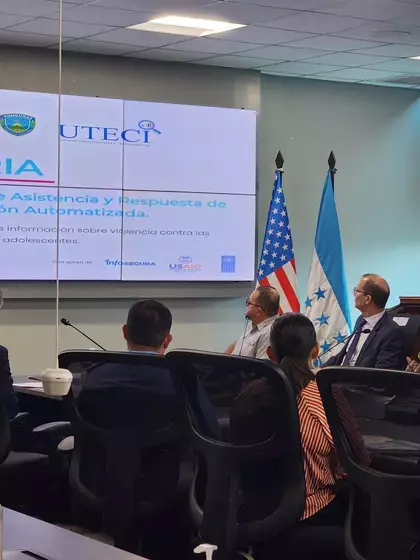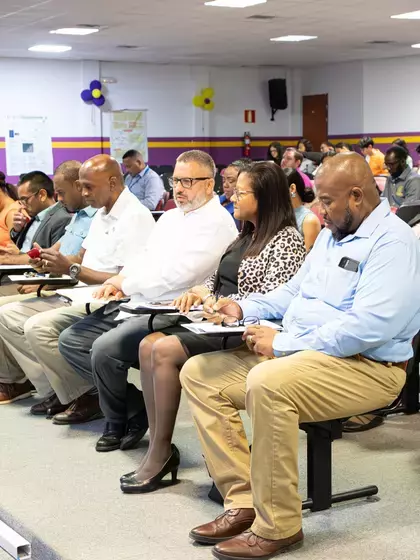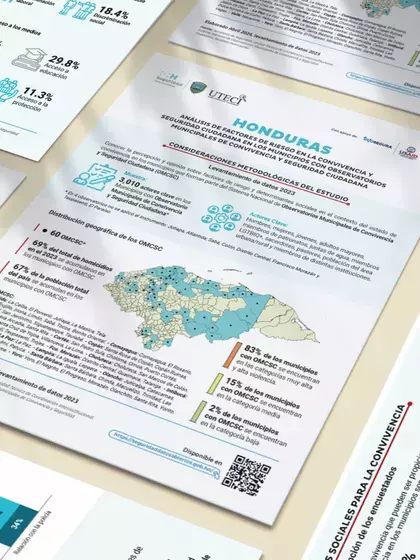Institutional experiences in the prevention of violence against women and prevention of sexual harassment in the workplace in Guatemala

UNDP Guatemala promotes work environments that are free from sexual- and workplace harassment. This has included strengthening the technical capacities of staff at different state institutions. It has also had a guiding role in the implementation of institutional actions for the prevention of violence and sexual harassment in the workplace. These include the following:
At the Executive Secretariat of the National Coordination for Disaster Reduction (SECONRED its Spanish acronym) the UNDP helped prepare the protocol and guidebook for harassment prevention to advance towards being certified with the "Gender Equality Seal," which is now implemented by the Coordinating Committee. Institutional personnel were also trained in correct and effective protocol implementation.
In addition, staff at the central offices of the Presidential Secretariat for Women (SEPREM its Spanish acronym) held broad-based discussions on the comprehensive guidelines for preventing and addressing workplace harassment and sexual abuse in Guatemalan public institutions. Moreover, UNDP worked with the National Science and Technology Secretariat (SENACYT its Spanish acronym) on a guidebook to assist in the implementation of its harassment policy and case referral, when there are behaviours that border on criminal violence or sexual assault. A guidebook was also prepared to raise staff awareness and, in the personnel selection and hiring processes as well.
These efforts have had the support of the United States Agency for International Development (USAID) through the Infosegura Regional Project, and the support of the Swedish Government with its Ixil Joint Programme for Comprehensive Rural Development in Guatemala.
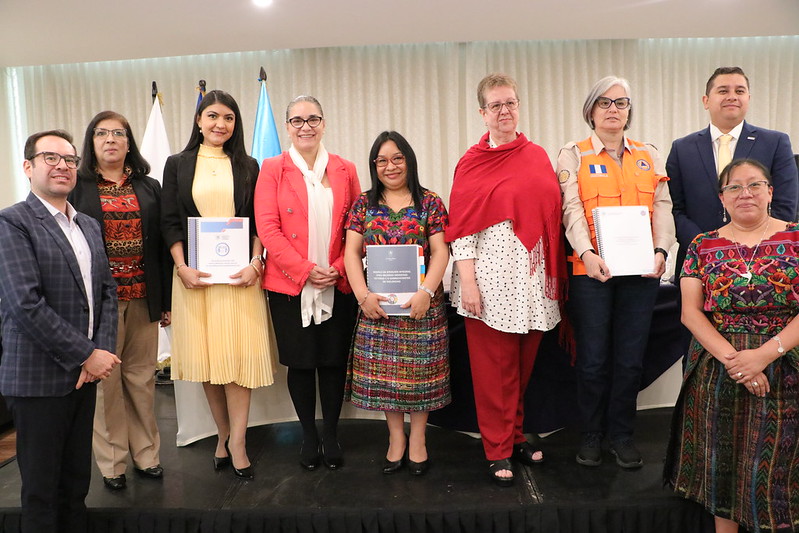
Data power: widespread sexual harassment undermines gender equality in the workplace
Workplace harassment may disturb anyone, but it greatly affects women and reinforces stereotypes about their capacities and aspirations, with the effect of fewer women remaining in the labour market. This widens the gap in women's labour-force participation.
The most recent data from Guatemala presents more detail on age, place of occurrence, region and population. During the forum: "Institutional experiences in the prevention of violence and the prevention of sexual harassment in the workplace," National Statistics Institute (INE) representative Danae Pernilla Tylor stated:
"in the case of Guatemala, violence against women in the workplace is characterized by the abuse of authority perpetrated by bosses or colleagues."
According to the 2024 National Household Survey on Quality and Wellbeing (ENCABIH Spanish acronym), this form of violence encompasses a wide variety of behaviours, anything from sexual innuendo, hostility, humiliation, involving insults and harassment and in extreme cases, even rape. It may also take the form of contempt for the victim, unfair wage inequalities and even unjustified dismissal. The speaker noted that the highest proportion of women who have experienced violence at work in their lifetime are age 30 to 34 (30.1%), while the lowest are 55 or older (7.8%).
Pernilla noted the prevalence of violence against women ages 15 or older in their lifetime, at work, by region. The proportion of women who experienced workplace violence in their lifetime was the highest (30.9%) in Region I, followed by Region VII (25.6%), which also has the largest Native American population. Conversely, Region VI had the lowest proportion of women (13%) who experienced this type of violence.
One of the highlights of the forum was the handover of the institutional instruments mentioned above. Participants shared workplace violence- and sexual harassment prevention experiences at their institutions, including SECONRED Executive Secretary Claudine Ogaldes, Office for the Defence of Indigenous Women (DEMI) Ombudswoman Carmelina Espantzay Serech, Head of the SENACYT Gender Unit Nancy Carrillo de Valle, Raquel Batzín of the Working Women's Section of the Ministry of Labour, and Angélica Valenzuela who is Executive Director of the Centre for Research, Training, Support for Women and Youth (CICAM).
In closing the event, SEPREM Secretary Ana Leticia Aguilar emphasized the importance of a comprehensive approach in addressing these issues, promoting policies and practices to ensure workplace safety with respect for all. Aguilar also stressed the need for making all of society aware of these matters, and implementing effective reporting and protection mechanisms for victims.
Reinforce institution capacity for the prevention of violence against women and indigenous women
In the interest of enforcing control of the convention that makes institutions responsible for guaranteeing respect for human rights and that when these are violated, said behaviours are sanctioned, the UNDP in Guatemala, through its partner CICAM, assisted the DEMI in updating its comprehensive care procedural manuals (psychological, social and legal), in preparing the national call centre procedure manual, and the first response and follow up procedures in coordination with institutions in the justice sector. The UNDP also helped develop a national digital case management system with information on the characteristics of those requesting services, the type of service requested and the quality of service provided.
The UNDP worked with the National Institute of Forensic Science (INACIF) to strengthen staff capacities in providing expert assessment—primarily with women victims—in the most humane way, based on victimological principles, with care and self-care actions to reduce care staff empathy burnout. Professionals involved in conducting expert assessments were trained in the use of gender-responsive interviewing techniques to facilitate the analysis of the expert assessments.
By providing these tools, the UNDP strengthened prevention mechanisms in five institutions that respond to cases of workplace sexual harassment, and reinforced victimological and expert assessments with a human rights approach.
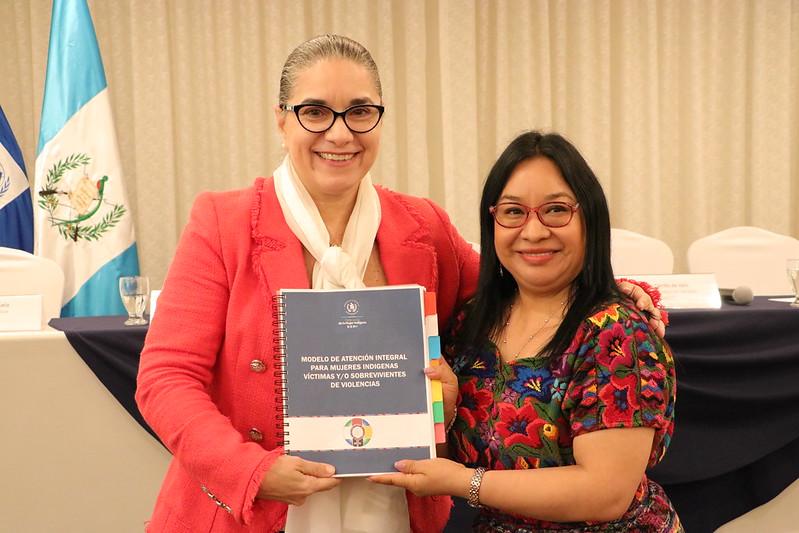
This article was originally published on the UNDP Guatemala website.



